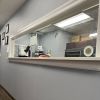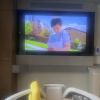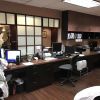Understanding the Importance of Heart Disease Screenings for Early Detection
- Why Heart Disease Screenings Are Essential
- Types of Heart Disease Screenings
- Key Benefits of Regular Heart Disease Screenings
- Real-life Example: How Early Detection Changed a Life
- Taking Action: How to Get Screened
1. Why Heart Disease Screenings Are Essential
Heart disease is one of the leading causes of death worldwide. The scary part is that it often develops without noticeable symptoms in its early stages. This is where heart disease screenings come in—they allow doctors to detect problems before they become life-threatening. By regularly screening for conditions like high cholesterol, hypertension, and irregular heart rhythms, individuals can identify potential risks early and take preventive measures. Screening for heart disease is not just for those already experiencing symptoms, but also for anyone at risk due to family history, lifestyle, or age.
2. Types of Heart Disease Screenings
Heart disease screenings can range from simple blood tests to more comprehensive exams. Some of the most common screenings include:
- Blood Pressure Check: Monitoring blood pressure is essential as high blood pressure is a key risk factor for heart disease.
- Cholesterol Tests: High cholesterol levels can lead to clogged arteries, which increase the risk of heart attack and stroke.
- Electrocardiogram (ECG or EKG): This test monitors the electrical activity of the heart and can identify abnormal heart rhythms.
- Stress Test: This test evaluates how your heart performs under physical stress, helping detect issues with blood flow.
These screenings help provide a clear picture of your heart health and allow doctors to intervene early if necessary. Regular checkups are particularly important if you have risk factors such as smoking, a poor diet, or a family history of heart disease.
3. Key Benefits of Regular Heart Disease Screenings
One of the greatest advantages of heart disease screenings is early detection. By identifying risk factors like high cholesterol or hypertension, doctors can prescribe medication or recommend lifestyle changes that can significantly reduce the risk of heart disease. Early intervention can prevent heart attacks, strokes, and other serious complications, ultimately saving lives.
Additionally, regular screenings can give patients peace of mind. Knowing your heart health status helps reduce anxiety about undiagnosed conditions. Furthermore, preventive care is usually less expensive than treating advanced heart disease, making screenings an essential part of maintaining long-term health.
4. Real-life Example: How Early Detection Changed a Life
Take the case of Sarah, a 45-year-old woman who had no symptoms of heart disease but decided to get a heart disease screening because of her family history. During her checkup, she was diagnosed with high cholesterol and high blood pressure, both of which she hadn't noticed. Her doctor immediately recommended lifestyle changes, including a healthier diet and regular exercise, and prescribed medication to control her cholesterol levels.
Had Sarah not undergone the screening, she might have been unaware of the risks to her heart health. Today, she continues to live an active, healthy life, thanks to early detection. Her story is a testament to the value of heart disease screenings—something that could potentially save your life, just like it did for Sarah.
5. Taking Action: How to Get Screened
If you haven't had a heart disease screening yet, now is the time to take action. Begin by consulting with your doctor, who can recommend the appropriate tests based on your age, family history, and lifestyle. It’s important to schedule these screenings regularly, especially if you have any risk factors for heart disease.
Remember, screenings are not just for those who already have symptoms—they are an essential preventive measure for everyone. Take the first step toward better heart health today and make heart disease screenings a regular part of your health routine.
Understanding the importance of heart disease screenings is the first step toward protecting your heart. By staying proactive about your health, you can catch potential issues before they escalate. Don't wait until it's too late—schedule your screening today and take charge of your heart health!




















